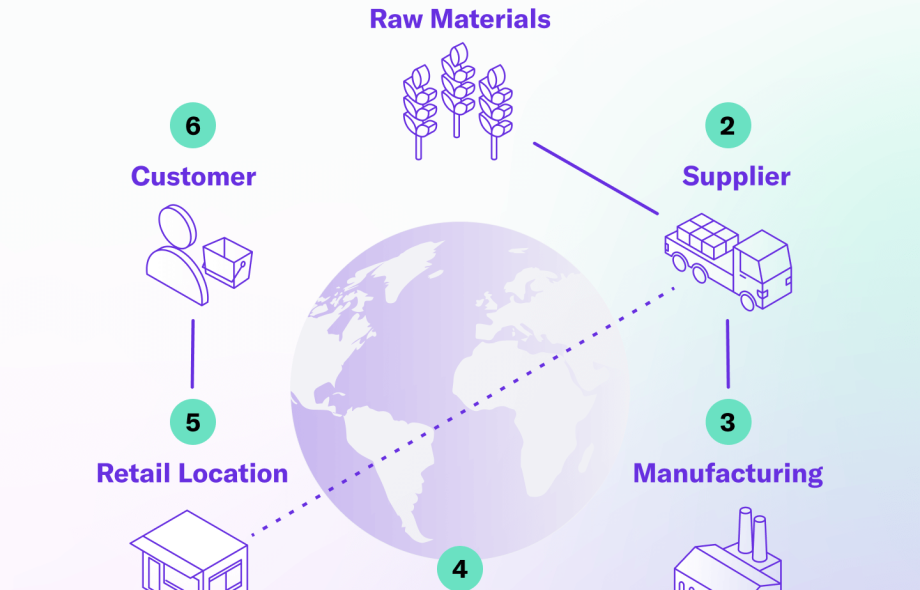In the fast-paced movement of economic trends, the global supply chain has changed drastically in recent times because of the factors driven by technological advancements, shifting consumer behaviours, geopolitical factors, and ongoing climatic challenges. In the business & investor mode of language, it is a vital factor to understand and observe the future of the supply chain companies and their associated share prices for analysis. This article will walk you through the key factors that may surely reshape the supply chain industry and its shares that are in the space.
Key Trends Reshaping the Supply Chain Industry
- Technological Advancements and Automation
One of the major forces driving the supply chain industry to the new trends is technology. Due to the advances in AI, machine learning, robotics, and automation, the integration of technology into the supply chain industry is growing at its peak. Companies that grasp these technologies will reduce operational costs and enhance efficiency; this will make a direct hit on the profit margin and share prices.
For instance, the logistics giant like “Amazon” is heavily investing in AI-powered systems to optimize delivery options, predict demand for more products shortly, and changing their warehouse operation with minimum human interventions. This shows a clear vision that due to, the automation spreads, the more valuable ROI will be from the technological expenditure.
- E-commerce Boom and Last-Mile Delivery
The rapid growth of the E-commerce business has made an intense impact on the global supply chain, especially in last-mile delivery. In recent times, consumers are expecting orders to be delivered as quickly as fast without any delivery charges for the purchase and companies are also working to adopt these demands. These demands will be fulfilled only when the company focuses on regional fulfilment centres, advanced routing systems, and partnerships with last-mile delivery providers.
To track your airway bill without any Ads click the link Trackawb.com
The stock prices of the companies that are involved in these sectors are estimated to gain long-term growth as e-commerce continues to thrive. In addition to that, most logistics tech companies are digitalizing their platforms to improve their supply chain operations.
- Sustainability and Green Logistics
Nowadays, consumers are more concerned about eco-friendly practices, and the government is also increasing its curb on carbon emissions; due to this, supply chain companies are focusing on reducing their environmental impact in all areas. This includes optimising the delivery routes to reduce emissions and investing in EVs for transit.
The companies and their projects that explain sustainability will get a greater investor impression than others. For example: Tesla, in addition to their EVs they are also focusing on energy-efficient & management solutions, which could boost its stock prices further.
- Global Supply Chain Resilience and Risk Management
The COVID-19 pandemic has made manufacturers and supply chain companies rethink their risk management strategies and diversify their sourcing and manufacturing operations. This trend is towards “nearshoring” (bringing production closer to home markets) and “multi-shoring” (using multiple suppliers in different regions).
Again, companies that are also focusing on supply chain disruptions and building resilience will have greater investor impressions.
- Data-Driven Supply Chains and Predictive Analytics
The ability to handle a large amount of data and its prediction will take supply chain management to the next level.
By levitating a large amount of data from various sources like consumer behaviour, inventory data, and weather patterns, and by analysing the data, they can increase efficiency, which in turn boosts their investor impression and share prices.
Factors Affecting Share Prices in the Supply Chain Sector
- Macroeconomic Conditions
Global economic factors like inflation rates, tariff policies, and interest rates can significantly affect the supply chain sector.
For instance: tightening the trade restriction will drastically affect the cross-border supply chain. Companies that are agile in handling the macroeconomic condition will get a better stock performance.
- Geopolitical Risks
The geopolitical situations like supply chain disruptions due to natural disasters or political unrest will affect share prices; a key example for this is ongoing trade tension between the USA and China; due to this, many supply chain companies are thinking of a strategy to overcome. Entities with a diverse presence will be insulated from these risks.
- Mergers and Acquisitions (M&A)
In a widespread situation of a logistics sector marked by intense competition and rapid growth, Mergers and Acquisitions are common. Companies that are focusing on mergers and acquisitions will have a higher energy and positive path of growth. This will obviously make a good impression on the investor side as a sign of strategic strength.
- Supply Chain Innovation and Strategic Alliances
Supply chain companies with a strong alliance with other sectors will have a rise in the share price. For example: a supply chain company collaborating with technology companies for their automation development and for implementing AI technology will have a positive rise in the share.
However, the logistics sector is dynamic and full of potential; the collaborative evolution of the sector with new technologies is likely to reflect in their share. The above points are also keynotes for the investors to select an appropriate company to seed their investment for long-term growth.












